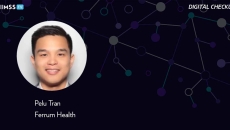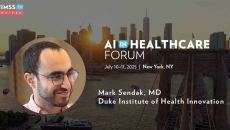Operations
Implementing AI successfully across healthcare organizations requires strategic problem selection and risk management. HIMSS' maturity models can guide leaders on their journey to adopting the right AI solutions.
At Healthcare 2030, panelists discussed changes to health plans, cost transparency for consumers and the importance of measuring outcomes.
The alliance will result in alerts being sent to high-risk populations with the aim of preventing injuries caused by adverse weather conditions.
While AI is an important part of healthcare modernization, SolvDat founder and CEO Rosha Pokharel says a robust data layer and strong governance are key for unlocking lasting operational and clinical gains.
Kerri Webster, RN, Children's Hospital Colorado VP and chief analytics officer, says the hospital prioritizes training staff in AI literacy to ensure that outputs are validated and the technology is used ethically.
Healthcare executives and technology experts met at the first HIMSS AI Leadership Strategy Summit in Chicago to discuss how organizations of all sizes can best leverage AI tools to drive measurable ROI and transform care delivery.
AI deployment in healthcare lags due to data security requirements and patient safety risks, says Ferrum Health CEO Pelu Tran, who recommends creating platforms that let providers securely plug in and swap AI tools as needed.
Sutter Health will deploy Hyro's conversational AI platform across the California health system to automate routine patient interactions through chat, voice and SMS.
The deal marks Innovaccer's fourth acquisition in the past two years.
While smaller hospitals and FQHCs often lack the infrastructure to deploy AI, Duke's Dr. Mark Sendak says the Health AI Partnership is working to help them access AI tools that can drive efficiency and reduce administrative burden.









